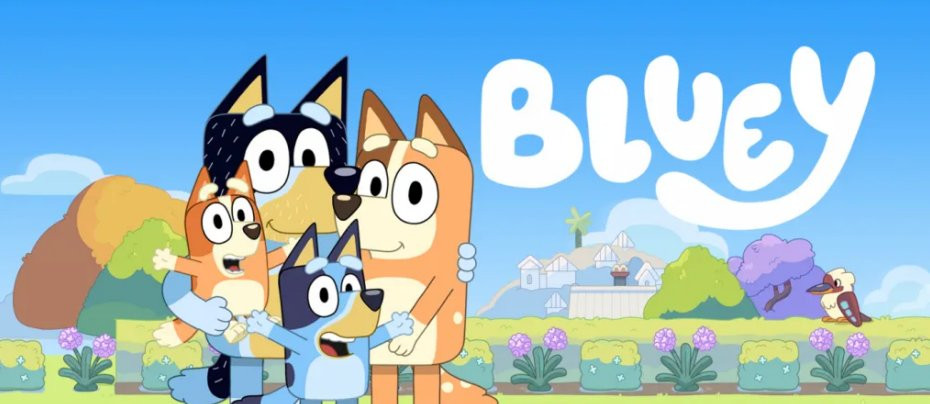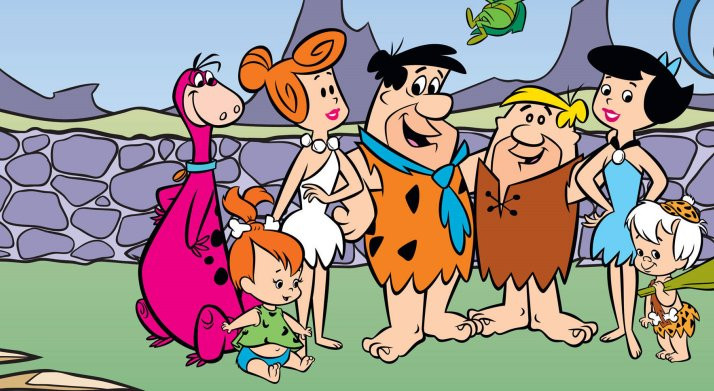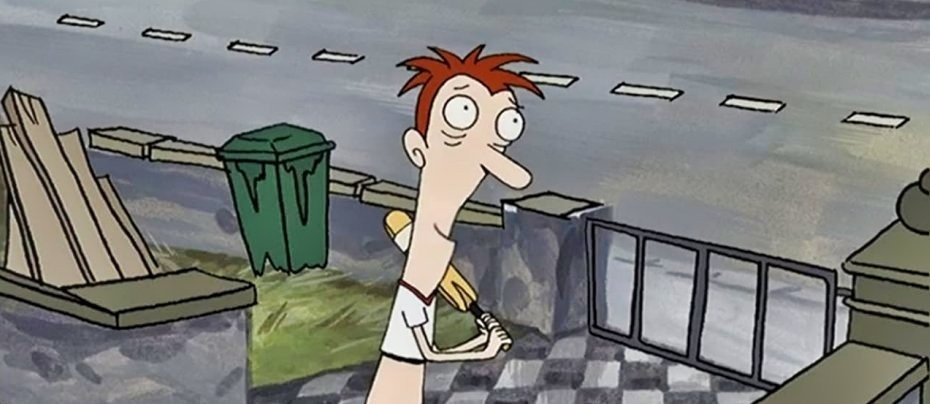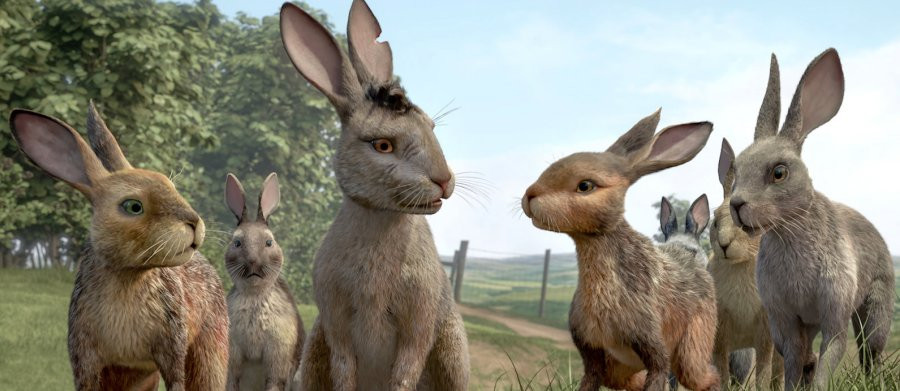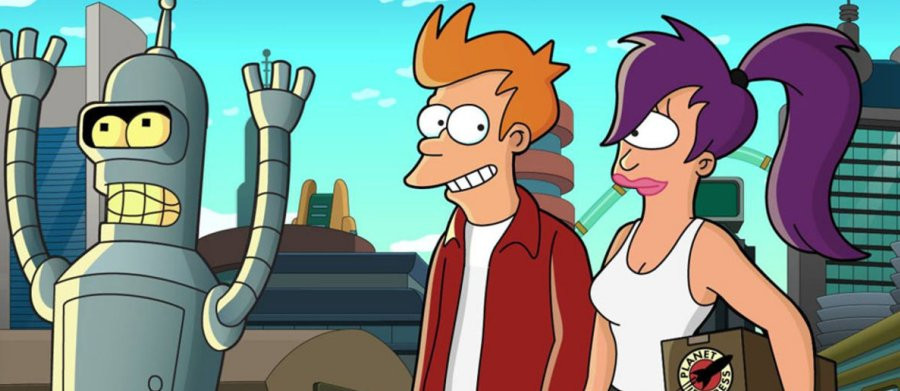
Aggretsuko
2018 - JapanAbove all it has something quite serious to say about a lost generation of youngsters
Aggretsuko review by John Winterson Richards
The first big surprise about Aggretsuko is that this Japanese anime about anthropomorphic animated animals - sorry, could not resist that - delivers some of the best social drama about real world humanity in recent years.
The even bigger surprise is learning that this very mature and perceptive show is made by Sanrio, the company who gave us the ultra-child friendly "Hello Kitty" franchise. Indeed, the loveable characters seem to be following the cute "Hello Kitty" template in many respects, not least in its normal animation style - only to subvert it. This is not to say that it is satirising or mocking the genre. On the contrary, there is a definite element of tribute, perhaps nostalgia, to the references, because the underlying theme of Aggretsuko is what happens to the generation raised on "Hello Kitty" when they have to grow up and start building their own lives.
From the point of view of an older person, it presents a very illuminating picture of the priorities and lifestyles of young adults, in the proper sense of adults who are still young rather than teenagers who think they are adults, in the 21st Century. This must be qualified by noting that there are certain peculiarities unique to Japanese culture that do not apply elsewhere, or at least not to the same extent, but these are interesting in their own right, and, in any case, do not alter the fact that most of the challenges faced by our eponymous heroine in her work and social life are almost universal these days.
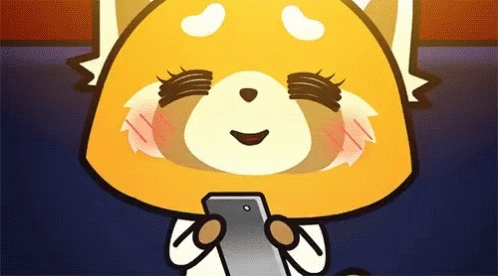
Retsuko, a red panda, and therefore possessor of about the sweetest face imaginable, is an apparently meek junior office drone in the Accounts Department of a large company. There she is overworked and bullied by her chauvinist boss, Director Ton, appropriately a pig. She must also endure the office gossip, the office flirt, and the office sycophant. Money, or the lack of it, is a constant concern. So, at the same time, is keeping up appearances. Meanwhile her mother is nagging her to get a boyfriend and get married. Retsuko herself has no idea what she wants to do with her life. She feels confused and frustrated, and gives vent to the emotions she suppresses by hiring a private karaoke booth and singing "death metal" music, if singing and music are the right words in this case.
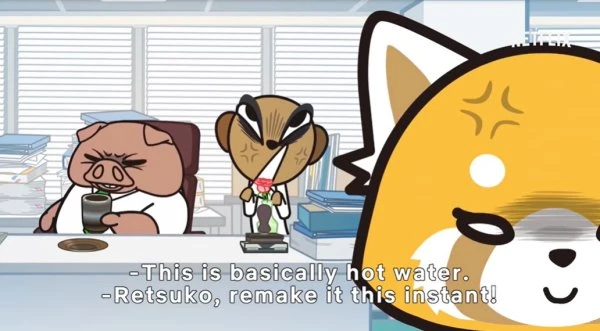
This is where the subversion begins. The traditional style of animation is abandoned at these moments and Retsuko's whole appearance changes. Indeed, one of the great strengths of the show is the imagination with which it switches from its normal animation style to the surreal in order to illustrate strong emotion of any sort on the part of the various characters.
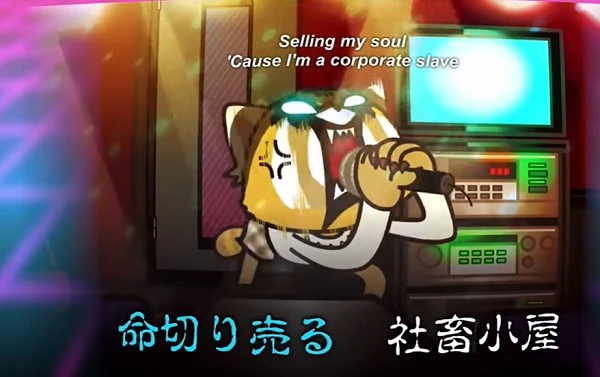
Poor Retsuko has a lot of emotion to process. Her subordinate position and the image she projects as a quiet introvert mean others take advantage. When, understandably, she starts looking for a new job, her boss mocks her and bullies her even more. She considers her mother's advice and starts thinking of marriage as an alternative to career.
In the first season, she throws herself into an ill-judged office romance, projecting on to the object of her affections qualities he obviously does not have, mistaking his stupidity for hidden depths. In the second, she seems, at first, to make the opposite mistake when she is drawn to a disengaged donkey for no obvious reason: although she likes him, she is repelled by his layabout attitude, so alien to Japanese norms, but this time there really is more than meets the eye. However, this storyline fails in the end to live up to its potential because it is not clear why she is attracted to him when he seems to be a loser and less attracted when, no great surprise, that turns out not to be the case. This is a pity because the character is interesting.
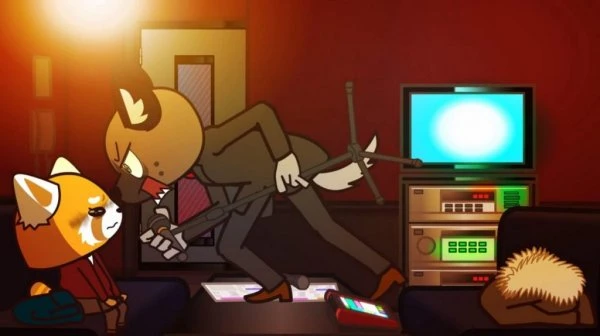
At the same time her work life is made particularly stressful by an office feud with a familiar 21st Century type, a "barrack room lawyer" determined to be offended who turns everything into a legalistic dispute. This thread is all too credible and handled with great skill, and one begins to feel the anxiety Retsuko is experiencing over essentially nothing.
The third season takes an eccentric turn. An accident leads to Retsuko becoming involved with an aspiring girl band. At first her accountancy skills and business experience are of great help to the band on that side of things, but her singing also leads to the band taking a new musical direction. The season benefits from the introduction of two strong new characters. The band's manager seems confident and assertive, as one would expect of a leopard, but there is another side to him. The same is true of the band's chinchilla lead singer, who seems at first to be superficial and self absorbed. In almost any other show, she would be set up as Retsuko's bitchy arch rival, jealously defending the dominance she has established over the band against an unwelcome interloper, but here she is given a fully rounded characterisation and backstory, and eventually develops a supportive, if slightly edgy, friendship with Retsuko.
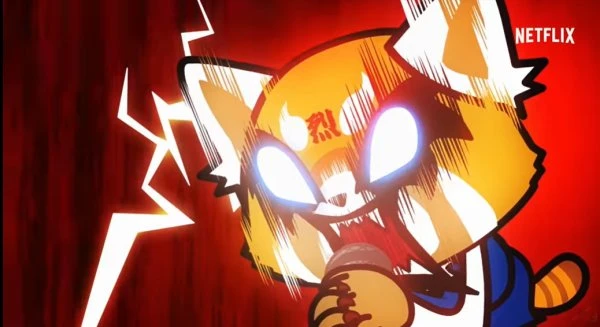
The only problem with the band storyline is that it rather wrote the character of Retsuko into a corner. The fourth season began with her having experienced a degree of minor fame not once but twice. This rather undermined the basic premise of the show, which is that Retsuko's story is supposed to represent the trials and tribulations of an ordinary wage slave.
The last two seasons took us even further from this by making her even more extraordinary. In the fourth, it turns out that an online video channel she set up almost casually in the previous season has enjoyed enormous success without her noticing. This is not the way the internet usually works! In the fifth season, her fame is acknowledged to the extent that she is asked to run for the National Diet, Japan's Parliament, despite her having no real political agenda or any previous interest in politics. It all seemed very contrived, and these two seasons were much less popular with fans than the earlier ones.
It also did not help that the fact that Retsuko was now almost superhuman - or superpanda - meant that the focus of the story shifted more to the supporting characters and away from her.
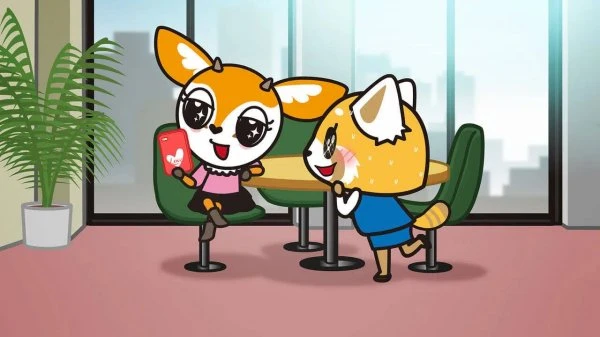
Most of these characters are in themselves well drawn. Retsuko had at a very early stage, and rather easily and conveniently it must be said, made friends with the two alpha career women at the company where she works: the secretary bird who is nominally the Chief Executive's, er, Secretary but who actually keeps the whole thing running, and the high flying gorilla Director of Marketing. Both are very fond of her and treat her as a protege, even if there is always a sense that she is a bit out of her league with these accomplished older women, and her most loyal friends are an observant fennec fox and a spotted hyena who work with her in Accounts.
Even characters who were previously antagonistic are shown to more complicated than they appear at first. The bullying Director of Accounts is revealed, very slowly, to be a loving family man with a very strong sense of loyalty to his subordinates. The office gossip, a hippo, turns out to be a warm, motherly figure. The office flirt, a beautiful gazelle, helps Retsuko with some shrewd advice. Even the legalistic badger who made Season Two a misery for poor Retsuko is given some redeeming qualities. It is, however, a nice authentic touch that he still remains a bit prickly.
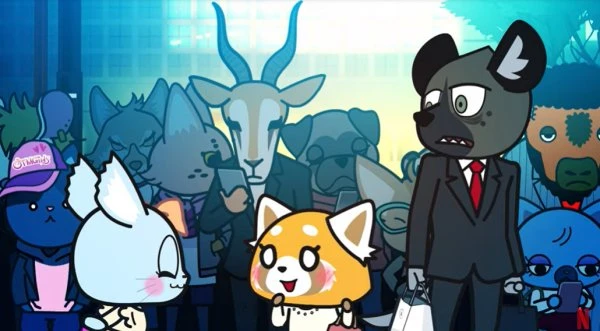
These are all well constructed, three dimensional characters, but they are not enough to carry the fourth season, which is mainly about office politics, in which Retsuko takes a more marginal role - in spite of being given an amusing Mission Impossible moment. Meanwhile, she begins dating her hyena colleague, who has been carrying a torch for her for a very long time. We are obviously meant to sympathise with him, but we are more invested in Retsuko and cannot help feeling that she might have been better off with the donkey.
The hyena is too weak for her and she basically ends up carrying him. Things are actually made worse by revelations in the final season about his family background which undermine all the assumptions on which his previous character arc were based. This is clumsy storytelling, and he comes across as even more needy and pathetic. We end up feeling that Retsuko deserves better. There is a reason why the heroine in romantic films usually ends up with the transgressive hero rather than the friend who has been hiding an unrequited love: it may not be the best recipe for a happy marriage but it is the narrative the audience has come to expect.
The inadequacy of her love interest is accentuated by the contrast with Retsuko herself. While she remains likeable, she has grown up. She is no longer the doormat she was in Season One. She is now acknowledged openly as truly "Aggretsuko" - meaning "aggressive Retsuko" - and even gets a hilarious martial arts moment. It seems the enigmatic sensei at her yoga classes has also been giving her nunchaku lessons on the quiet. Do they do that in yoga?
While the last two seasons do deliver some fine comedic moments on those lines, there is a strong school of thought that the show could have wrapped after the end of Season Three without losing much in terms of drama and character development. Yet the fact that a show about cartoon animals has drama and character development is significant in itself. Aggretsuko also has considerable wit and huge visual imagination.
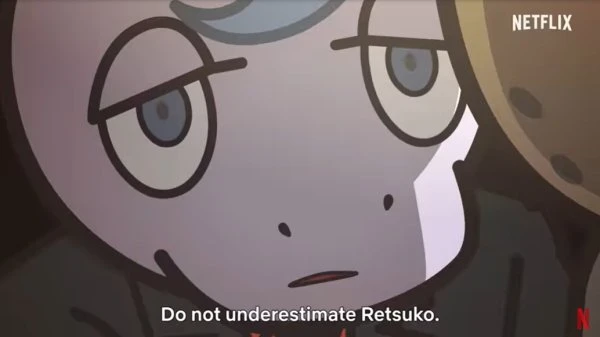
Above all it has something quite serious to say about a lost generation of youngsters, who are forced to work very hard to maintain their status in a very hierarchical culture - apparently it is extremely difficult to get fired in Japan and therefore equally difficult to get a job in the first place, and anyone who falls off, or jumps off, the career ladder becomes something of an unperson. While things are not quite the same in the West, Aggretsuko leaves one with a better understanding of youngsters who lack the motivation that led to Post-War "economic miracles" in part because they are the ones paying the bills of the busts that followed the booms.
Seen this show? How do you rate it?
Seen this show? How do you rate it?
Published on April 15th, 2023. Written by John Winterson Richards for Television Heaven.



